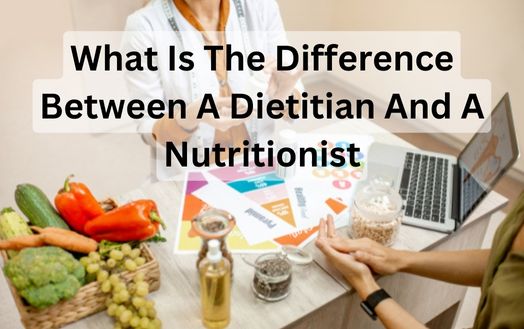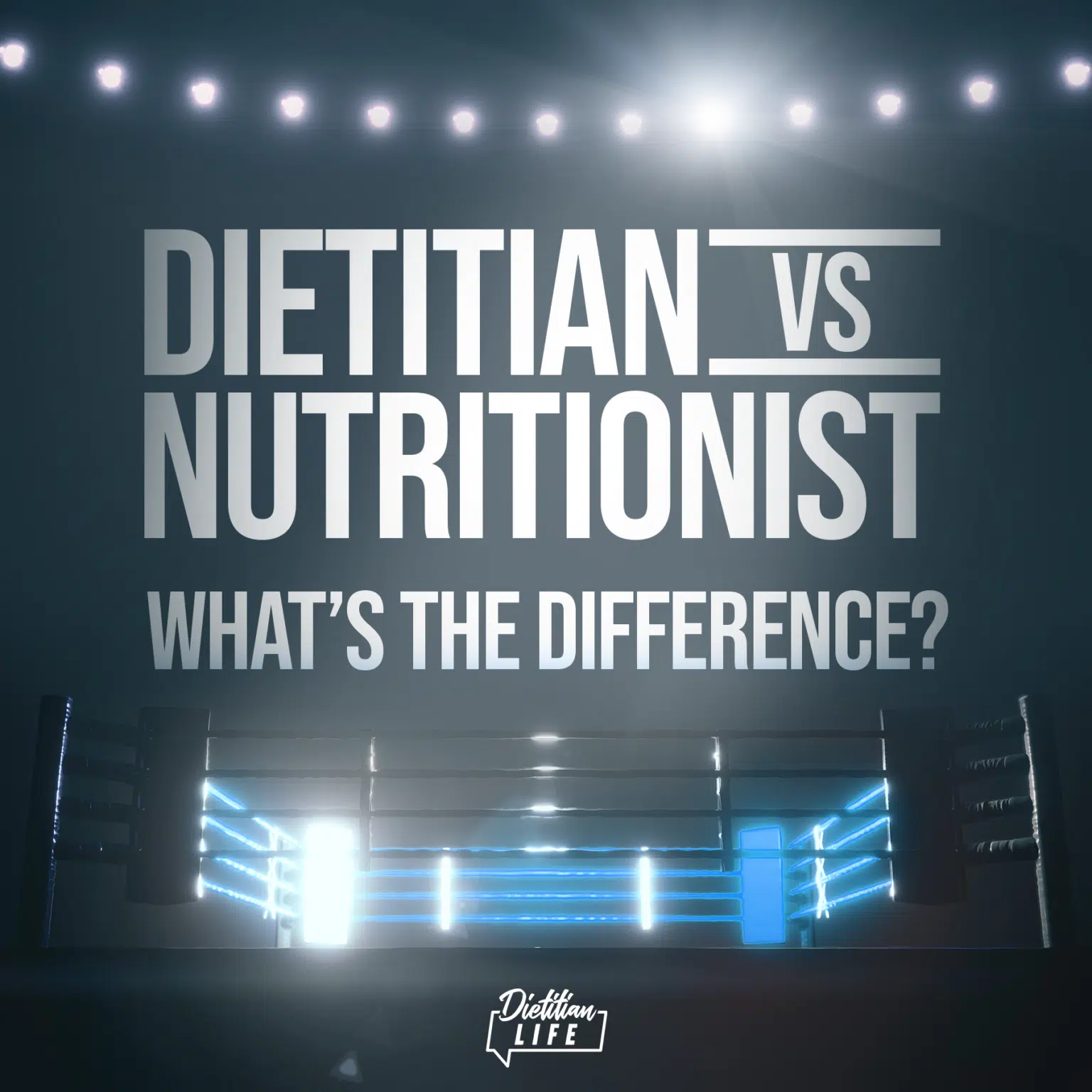All Categories
Featured
Table of Contents
-1
And if you would love to enter the food and nutrition market, it deserves recognizing what those distinctions are now. This quick break down ought to give you an excellent concept. Dietitians assist their customers browse the connection in between food and health. They do this by converting the most recent clinical and clinical research study right into sensible guidance that individuals can relate to their lives.
-1Nutritionists generally operate in group settings, educating broader neighborhoods and organisations. They can also operate in other fields such as: Evaluation policies and guidelines around foods, including high quality checks. Guarantee that food is produced to satisfy food security standards. Create programs and interventions to help the broader public address food problems.
-1The primary difference to understand is that the nutrition career isn't regulated in Australia. This means that technically, any person can call themselves a 'nutritionist', while you have to have an approved dietetics qualification to be a dietitian. To protect effectively practicing nutritional experts, the Nourishment Culture of Australia has a Register of Nutritionists.
-1The average income for a nutritionist is $75,000 per year. This can vary from $60,000 to $90,000, depending on the function.
Nutritional Assessment – Fremantle
-1Keen to deal with customers on their dietary objectives earlier as opposed to later on? Study a level in nutrition. Want to take your competence also further, and help treat diet-related clinical conditions? After that an occupation as a dietitian could be appropriate for you. In either work, you will certainly play an important role assisting people make the very best choices for their diet plan and health and wellness.

-1
Dietitian and nutritionist: both of these careers function around diet and food, yet are they the same? What specifically is the distinction in between a dietitian and a nutritional expert?
-1Regardless of the distinctions in qualifications in between a dietitian versus nutritional expert, the wages are fairly comparable. While there is a higher need for qualified dietitians, nutritionists often tend to have higher task fulfillment - Bariatric Dietitian.
Registered Dietitian Eating Disorders
-1You can work in a large variety of industries for a wide array of organisations or also on your own. If you're still unsure about whether to come to be a dietitian versus a nutritionist, the complying with might aid you decide. As a dietitian, you can take pleasure in a career as a: a registered dietitian or dietitian nutritional expert is somebody who works in the general location of dietetics, recommending diets, supplements and dietary help to sustain healthy and balanced way of lives and disease administration.
-1To end up being across the country recognized, dietiticians must sign up with the Accredited Practising Dietitian (APD) program and become a participant of Dietitians Australia. Whether dietitian or nutritional expert is a much better occupation for you far better relies on your personal preferences. It's important to note that all dietitians are nutritionists, yet not all nutritional experts are dietitians.
Paediatric Dietitian
-1Both occupations are entailed with helping people achieve their health goals with food education and learning, but there are numerous factors that set them apart. If you have an interest in recommending individuals on dietary and dietary problems, you may have what it requires to become a nutritionist or diet professional. The area of food science is unbelievably broad, offering a variety of career opportunities to qualified experts.
-1Nutritionists specialise in giving evidence-based advice and solutions associated with nutrition. Through normal appointments, nutritional experts assist clients recognize the web link in between diet regimen and health so they can make even more enlightened choices around food and live a healthier lifestyle. Nutritional experts generally function with clients on a private basis, although they additionally work with teams with a particular goal (e.g.
Sports Nutritionist
-1Although you don't have to examine to end up being a nutritionist, doing so might improve your chances of advancing your profession in this field. Courses that have a specialty in Nutrition, like the HLT43015 Certificate IV in Allied Health Assistance (Nutrition and Dietetics Specialisation), are made to establish your understanding of the connection between food and health, enabling you to provide expert guidance on nutrition.
Clinical Nutritionist
-1Jul 09, 2018 Australia presently does not control the specialist titles 'nutritionist' or 'dietitian', leaving a broad market for false information if you do not do your very own research. The media additionally has a tendency to utilize both terms mutually, making differences in between certifications significantly hard. Continue reading as we damage down the differences in between these occupations, their appropriate qualifications, what they can do for you and what to search for when searching for an expert to aid you.
-1So you have actually made a decision that you need to enhance your health and wellness and that functioning on your diet is the most effective location to begin. You have read about the benefits of collaborating with a dietitian or a nutritional expert, but you aren't sure which you require or how to pick who to deal with.

-1
Nevertheless, the main distinctions are the kind of research study that has been completed by each specialist, and the policies attached to each title. A dietitian has satisfied the national and international standards for expert legislation. Dietitians are the only nutrition experts to be managed by legislation, and they are controlled by an ethicality (a lot like medical professionals are) to make certain that they always function to the highest possible criterion.
-1On the other hand, someone that has the title of a nutritionist is not shielded by regulation in several countries, and it is not a controlled term. All dietitians are thought about to be nutritional experts; nevertheless, nutritional experts without a dietetics certification can not take on the specialised duty of a dietitian. For someone to end up being a signed up dietitian, they require to have finished a 4 year university degree in Nutrition and Dietetics, or a 3-year scientific research level adhered to by a Masters Level in Nutrition.
Weight Management ( Fremantle 6163)

-1
Now that every one of this details has been offered, we can redirect our emphasis to the opposing end of this diet professional vs nutritionist argument. On a holistic degree when discussing 'what is the distinction between a diet professional and a nutritionist?', we can claim the roles don't differ hugely. Dietitians will still organise food and nourishment strategies, in order to promote a healthy way of living among their clients.
-1Dieticians can additionally function in educational facilities such as Universities. In comparison to this, the biggest difference between a nutritional expert and dietitians in the UK is that nutritional experts to work in medical markets. Athletic Performance Nutrition. Instead, they can function within the health and wellness and physical fitness sector in duties such as nutritional consultants in food distribution companies, in addition to a personal trainer who supplies guidance and referrals to their clients
-1This brings us on reviewing the next difference in between a diet professional and nutritional expert in the UK. You may have reviewed this heading and questioned 'is there a difference between a dietician and a nutritionists' clients?'. It's just natural to assume that any person going to either expert will be doing so for comparable reasons, however this is not the case.
Latest Posts
Sonya Douglas
Alissa Erneste – Kwinana
Supplements: What Are They, What Are The Risks And ... – Wanneroo